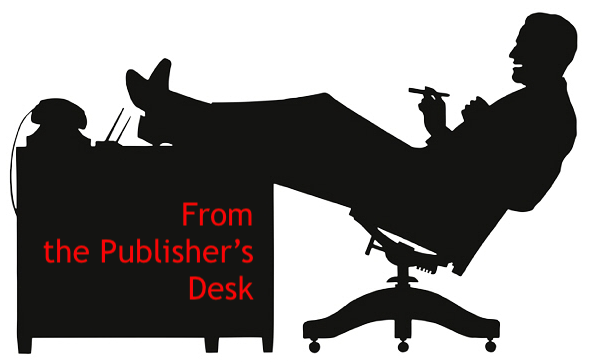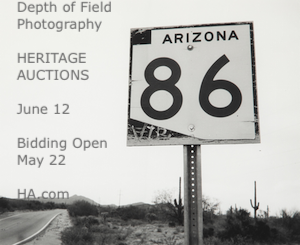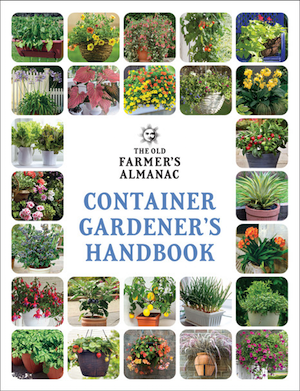
I Certainly Don't Know What I'm Doing
Maybe, just maybe, at the end of the day, the week, the month, a solution will come to hand.
Anybody who's been following the fits and starts of idleguy.com's birthing and rearing has probably gotten the idea that I don't know what the hell I'm doing.
And, they'd be right about that to a large degree.
Back in the days of newspaper publishing on a truly local level, I had a clue. You had limited space in which to cover a limited amount of stories, regulated by the amount of ad revenue produced for a single issue, be it daily, weekly, monthly or otherwise.
There were times in which the ad revenue didn't quite add up to cover the expenses of staff, rent, ink, paper, and distribution, but that was when editorial decisions were based on money. Fewer pages were required to carry a smaller number of ads, and, consequently, fewer, and often shorter, stories and articles.
That all began to change radically in 1989 and 1990, when Tim Berners-Lee, then a fellow at CERN, developed the world's first website - info.cern.ch and a protocol allowing for instantaneous communication over a world wide web.
Space constrains were voided. Anybody could publish anything, at any time, and it could be seen anywhere. A person could now publish a 400-page doctoral dissertation for little more than the cost of hosting his pages, which, these days, amounts to a mere pittance. Printing was doomed. Printers large and small went out of business. Editors lost their jobs. Hack writers were tossed to the curb, only to re-emerge on the internet. Proofreaders? Hah! It's obvious nobody needs those people anymore.
That's why printed magazines are so slimmed down these days, whereas websites are large and growing larger and ad budgets are smaller. Actually, the idea of running ads on websites may be nearing an end. Witness places like X, or Substack. It just keeps changing.
As for me, I've been publishing on the web for longer (25 years) than I did in print (10 years, 1982-1990), and with arguably the same, limited, success.
My parent publication, Downtown, the Unbound Magazine, originally began as a single sheet of paper, printed on one side, distributed daily - on foot - to businesses in downtown Rochester, New York. It grew into a 12 to 16-page weekly tabloid newspaper, suffering a competitive cardiac (thanks, Gannett!) in 1989, and fully folded up by 1990.
Nine years in the wild got me back into the publishing game in 1999. At first, the internet was like a new toy. There were lots of discoveries and ideas and websites trying all manner of publishing, some for profit, many just for kicks, or research, or scholarly works.
Around 2003, along came Google and ruined it for everybody. I warned people who owned websites at the time that they were entering into an open-ended contract when they signed up for AdSense, Google's ad-serving platform. Lots of people got rich from AdSense, others - self included - made a living off the ad revenue from ad codes placed alongside, above, below and everywhere around their original content.
Google took search to a whole new level, which was great, for a while. As Google grew, so too did their ambitions and influence by government and deep state actors that eventually thwarted their otherwise good intentions. Some may recall that Google's original motto, upon their becoming a public company, was "don't be evil."
They've progressed well beyond that idealistic goal. Now, they are an overbearing behemoth. AdSense publishers are subjected to reviews, rules, regulations, formatting controls, algorithms, and other wacky policies that has made running AdSense ads on one's website more a chore than a revenue producer or enhancer.
Google's latest death blow to free speech has been occurring since around September 2022, when hordes of mid-level publishers saw their daily returns slashed by as much as 90%, all the while Google reporting record profits. Google doesn't stand for free speech. They stand against it, which is why I have been weaning myself off their less than a dollar a day revenue. I mean, I like to eat, and I don't necessarily like running ads for almost nothing.
Essentially, Google can kiss my ass. I've been in the process of removing their ads from Downtown Magazine (www.dtmagazine.com), but, since most of those were hand-coded years ago, it's a time consuming process.
One thing you'll never see on idleguy.com are Google AdSense or Doubleclick ads, unless they show up because an ad agency or distributor is using them as a third party fall-back when they can't fill my ad spaces. Otherwise, Google is verboten on this site.
On a brighter note, I may have accidentally discovered a solution to my publishing, scheduling and timeliness woes. Being up-to-date within the constraints of a monthly publication (which idleguy.com purports to being) is a tough rigor. Events happen quickly, news travels fast, so something written on the first of March, say, is old hat by mid-month. To counter that sense of staleness, the pages presented this month (actually two months, April and May), will remain as they are, but with frequent updates, like the NCAA Tournament Blog from the march issue, which turned out to be a success and actually was fun presenting. Basically, idleguy.com will become a collection of monthly blogs under specific headings, like Sports, Money, Books, etc., along with feature stories that can stand the test of time and regular columns like Toast of the Town and my monthly missive.
Let's see how that works out.
 That's how you ended up with magazines like Playboy, Vogue, Cosmopolitan, Life, and Sports Illustrated often running over 100 pages. In the case of Playboy and Cosmo, that number ran to multiple hundreds. The December 1979 Playboy issue with Raquel Welch on the cover (shown at right) ran some 414 pages. Others in the 70s were routinely over 200 to 250 pages. The same could be said for Cosmo and Vogue on the feminine side from the late 60s through the 70s and into the 80s. They were fat, in a good sense. Lots of subscribers, lots of advertisers. The economy was strong and magazines were cool.
That's how you ended up with magazines like Playboy, Vogue, Cosmopolitan, Life, and Sports Illustrated often running over 100 pages. In the case of Playboy and Cosmo, that number ran to multiple hundreds. The December 1979 Playboy issue with Raquel Welch on the cover (shown at right) ran some 414 pages. Others in the 70s were routinely over 200 to 250 pages. The same could be said for Cosmo and Vogue on the feminine side from the late 60s through the 70s and into the 80s. They were fat, in a good sense. Lots of subscribers, lots of advertisers. The economy was strong and magazines were cool.
|
|||
| search engine by freefind |

